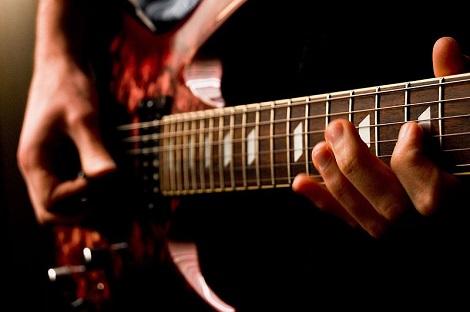
Published on: 05/04/18
The difference music therapy can make for people with acquired brain injuries has been explored in a white paper 'Taking Music Therapy into the Mainstream'.

Published on: 05/04/18
Scientists discovered that certain rhythms allow the brain to by-pass sections that have been damaged by stroke, traumatic injury or degenerative diseases such as Parkinson's and dementia.
The example given is that of a Parkinson's patient who helped recover balance and brain function listening to the pulsing beat of the Dire Straits song Walk of Life.
The research was released last month at Chroma Therapies’ event 'Arts Therapies and Brain Injury: Optimising Outcomes Across Assessment, Treatment and Care'.
This showed that rhythmic beats or songs with a strong connection to the patient have been shown to reactivate nerve cells and reboot the brain's sensory pathways to enable patients to communicate or recover physical ability.
"The emphatic rhythm and strong melody found in songs like the A Message to You Rudy or Dire Straits' Walk of Life make them songs ideal in the rehabilitation of speech, language and cognitive functions," said Daniel Thomas managing director of Chroma Therapies.
Dr Wendy Magee, music therapy professor, Temple University Philadelphia, said: "There is strong neurological evidence that music activates many different areas across the brain. The motor system is very sensitive to picking up cues from the auditory system so when we hear music, particularly pulse or rhythm, it kicks straight into the motor system going around the brain.
"Music can engage alternative pathways for a specific function, such as language, depending on the size of the lesion or even effect changes to brain structures. Studies have shown that music might excite activity around small lesions to activate function and, with larger lesions, it seems the healthy side of the brain might take on roles and mechanisms the damaged side was previously responsible for."
Speaking about a patient who is using the therapy, Daniel said: "We are currently treating a client who was diagnosed with Parkinson's disease about two years ago and while he listens to the radio, he has never played an instrument or ever experienced arts-based therapy but had heard of neurologic music therapy through a family member and felt it would be something to try.
"While he worked with an occupational therapist his condition continued to deteriorate but within a few neurologic music therapy sessions, he began to notice improvements in his balance and gait and importantly for him in his confidence. His OT also noticed a difference in his gait and balance.”